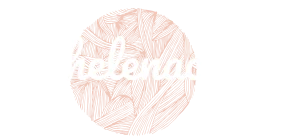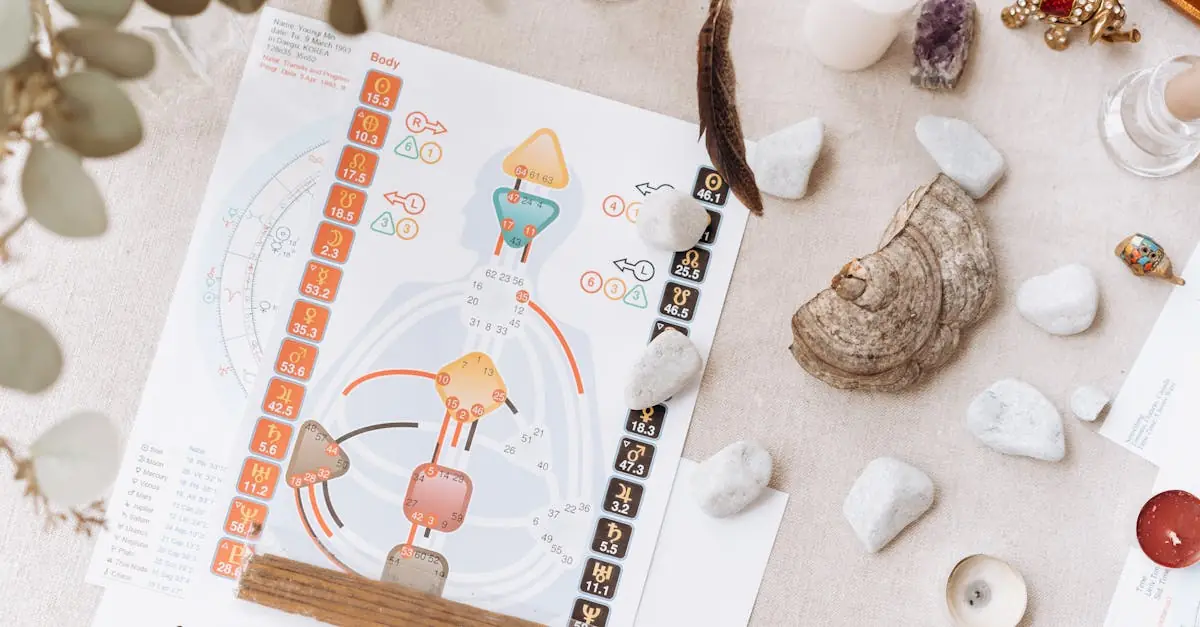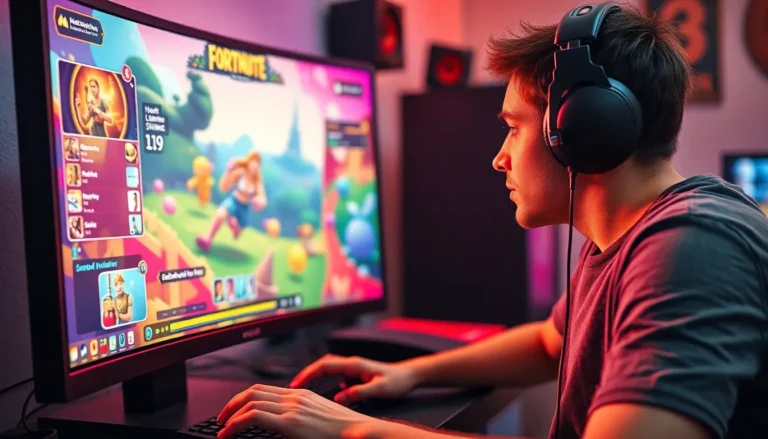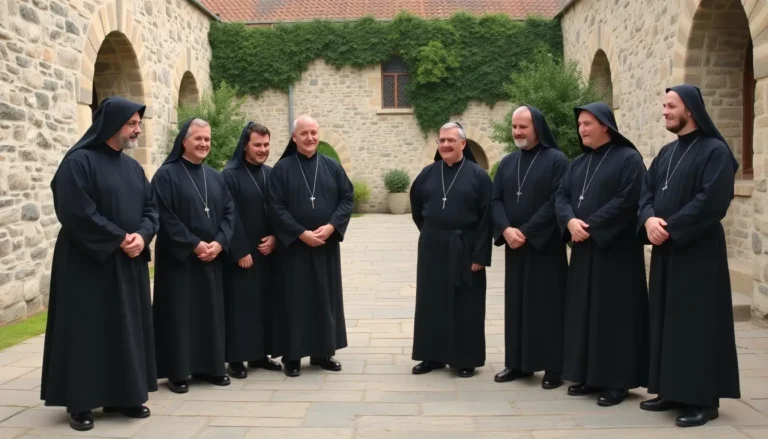Ever wondered how some people seem to navigate life’s chaos with the grace of a ballet dancer on roller skates? Enter ritual mapping—the art of charting one’s personal rituals to create a roadmap for a more fulfilling life. It’s like GPS for the soul, guiding individuals through the twists and turns of daily routines, while sprinkling a little magic along the way.
Table of Contents
ToggleUnderstanding Ritual Mapping
Ritual mapping serves as a powerful tool for individuals seeking clarity in their daily lives. This technique lays the foundation for developing personal rituals that foster deeper connections to oneself and the world.
Definition of Ritual Mapping
Ritual mapping involves identifying and documenting personal rituals that help navigate life’s complexities. Individuals create a visual layout of these rituals, enhancing awareness of daily practices. This approach encourages mindfulness and introspection. It allows individuals to see how their routines influence emotions and interactions. As a result, mapping becomes a personalized guide to emotional well-being.
Importance of Ritual Mapping
Ritual mapping holds significant value in promoting mental health and personal growth. It offers a structured way to engage with daily routines, turning mundane activities into meaningful experiences. Individuals report increased satisfaction and reduced stress levels when they intentionally cultivate rituals. This practice enhances one’s ability to navigate life’s transitions and challenges effectively. Building a personalized ritual framework contributes to a sense of stability and purpose.
Techniques in Ritual Mapping
Ritual mapping employs various techniques to help individuals visualize and organize their personal practices. These methods enhance self-awareness and guide users in their daily lives.
Visual Mapping Methods
Creating a visual representation of rituals significantly boosts understanding. Individuals can use diagrams, charts, or flowcharts to illustrate their routines. Each method serves to plot important practices and highlight connections between them. Engaging with colors or symbols adds emotional resonance and joy to the process. Simple sketches or detailed designs work equally well, depending on personal preferences. Crafting these visuals encourages mindfulness and offers a clear overview, fostering a deeper connection to daily activities.
Digital Tools for Ritual Mapping
Digital tools enhance the ritual mapping experience, offering convenience and flexibility. Apps like Trello and Notion allow easy organization of rituals, enabling users to categorize and prioritize tasks. Online communities often provide templates or inspiration for individuals starting their mapping journey. Furthermore, tools like Canva offer visually appealing designs for those wanting to create vivid representations of their rituals. Tracking routines through digital platforms encourages consistency and accountability. By utilizing these resources, individuals can streamline their mapping process and enhance their overall ritual experience.
Applications of Ritual Mapping
Ritual mapping finds diverse applications across various domains, proving its versatility in enhancing personal experiences.
Cultural Contexts
Cultural rituals undergo exploration through ritual mapping, reflecting traditions and shared practices within communities. Each culture incorporates unique ceremonies that foster connection and collective identity. Individuals can map these rituals to understand their significance, revealing how they shape values and beliefs. This practice also allows for the preservation of cultural heritage by documenting practices for future generations. As people engage with their cultural backgrounds, they strengthen communal bonds and bring depth to personal meanings embedded in daily rituals.
Psychological Insights
Psychological insights highlight ritual mapping’s impact on emotional well-being and mental health. Research indicates that individuals who engage in structured rituals experience decreased anxiety and improved mood. By mapping routines, people gain clarity on their habits and associated feelings. Understanding these connections fosters self-awareness, enabling individuals to adjust or enhance their rituals for greater emotional benefit. Additionally, ritual mapping can serve as a therapeutic tool, offering individuals a means to navigate significant life transitions. Establishing intentional practices enhances resilience, allowing for improved coping strategies during challenging times.
Challenges in Ritual Mapping
Ritual mapping involves several challenges that participants must navigate to fully benefit from the practice.
Ethical Considerations
Ethical concerns arise when individuals document deeply personal rituals. Privacy becomes paramount, as sharing sensitive information may lead to vulnerability. Respecting cultural rituals also poses challenges. Misrepresenting or appropriating cultural practices can cause harm to communities. Awareness of these dynamics ensures thoughtful engagement in ritual mapping. Consent remains essential, particularly when mapping collective rituals involving others. Clarity about personal boundaries mitigates potential discomfort. Establishing trust fosters an environment where participants can safely explore their rituals.
Methodological Limitations
Methodological challenges impact the effectiveness of ritual mapping. Subjectivity plays a significant role; personal biases can influence how rituals are perceived and documented. Individuals may struggle to maintain consistency in their mapping practices, affecting the reliability of results. The complexity of human emotions complicates the mapping process as well. Mapping may not capture the full emotional landscape associated with rituals. Time constraints can hinder thorough exploration, leading to incomplete mappings that miss important details. Addressing these limitations ensures a more accurate and meaningful representation of personal and cultural rituals.
Ritual mapping offers a transformative approach to navigating life’s complexities. By fostering mindfulness and self-awareness, it empowers individuals to create meaningful connections with their daily routines. This practice not only enhances emotional well-being but also encourages personal growth through intentionality.
As individuals engage with their rituals, they cultivate a deeper understanding of themselves and their surroundings. The visual representation of these practices serves as a guide, illuminating pathways toward fulfillment and stability. With the right tools and techniques, ritual mapping can become an invaluable resource for anyone seeking to enrich their life experience. Embracing this practice can lead to a more intentional and purposeful existence.








